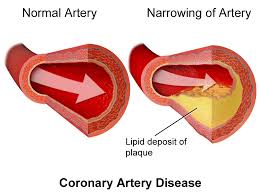Pomegranate extract was given to mice with a genetic proneness towards spontaneous coronary artery blockages through drinking water for two weeks, when they had three weeks of age. The treatment reduced both the proportion of the coronary arteries with occlusive atherosclerotic plaques and the size of the atherosclerotic plaques in the aortic sinus (the dilated opening above the aortic valve), despite the fact that pomegranate treatment actually increased cholesterol levels associated with very low density lipoprotein-sized particles.
What really surprised the researchers,were the other beneficial effects of the pomegranate extract treatment:
-Reduced monocytie chemotactic protein-1, a chemical messenger (chemokine) associated with inflammatory processes within the arteries.
-Reduced levels of monocyte chemotactic protein-1 and fibrosis in the myocardium
-Reduced macrophage infiltration in the heart muscle
-Reduced lipid accumulation in the heart muscle
-Reduced ECG abnormalities
-Reduced levels of oxidative stress
-Reduced cardiac enlargement
They asked themselves, how can something as commonplace and benign as a fruit extract reverse so many aspects of coronary artery disease, simultaneously, as it was evidenced by the study above? They say that the answer might be found in the fact that our ancestors evolved together with certain foods (fruits in particular) for so long that a lack of adequate quantities of these foods may directly result in deteriorating organ function. The journal Atherosclerosis published an interesting study in which they confirm that pomegranate extract may reverse or/and prevent the primary pathology associated with cardiac mortality: the accumulation of fatty materials on the coronary arteries known as atherosclerosis.What really surprised the researchers,were the other beneficial effects of the pomegranate extract treatment: Reduced lipid accumulation in the heart muscle Reduced ECG abnormalities Reduced levels of oxidative stress Reduced cardiac enlargement Reduced monocytie chemotactic protein-1, a chemical messenger associated with inflammatory processes within the arteries. Reduced levels of monocyte chemotactic protein-1 and fibrosis in the myocardium Reduced macrophage infiltration in the heart muscle .
tags:coronary artery disease,Healthy Food, Atherosclerosis ,





No comments:
Post a Comment